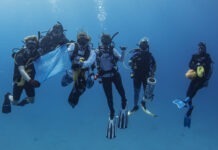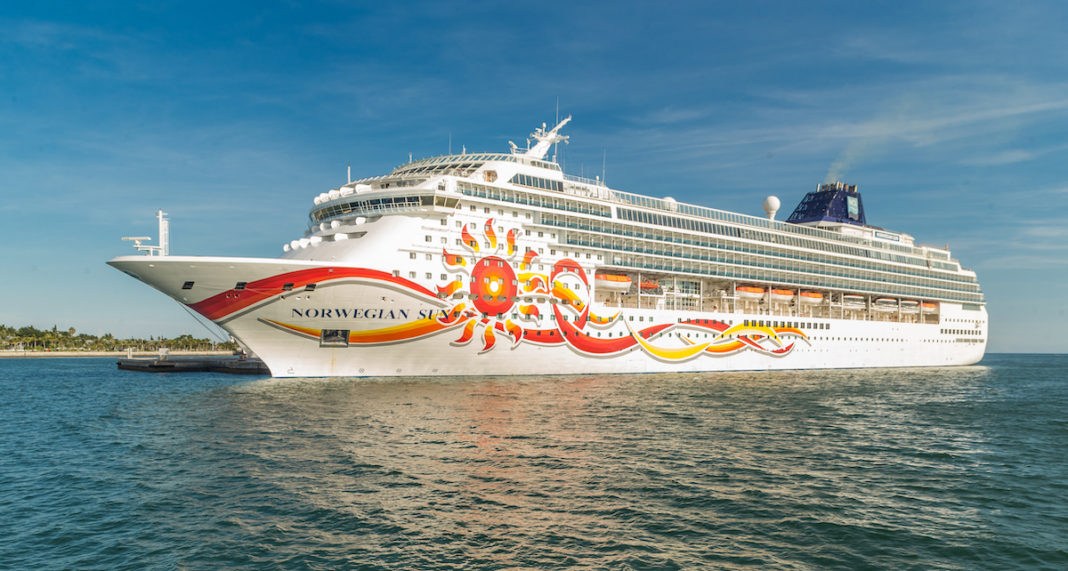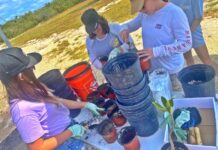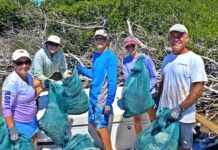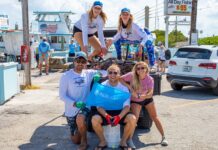Seven years ago, Key West was already being visited by some of the largest cruise ships in the world. But that wasn’t enough for the cruise ship industry and their local backers. They put a referendum before Key West voters that sought to dredge a wider channel through the Florida Keys National Marine Sanctuary to accommodate “super ships” — a then-new class of cruise ship so large that only a few harbors in the world can accommodate them.
Voters defeated the referendum with an astonishing 74% of the vote. It was one of the most lopsided elections in Key West’s history.
Cruise ship traffic to Key West has increased 26% since then. Last year we saw more than 390 cruise ships carrying 1.2 million people. Projections this year were for 450 ships and 1.5 million people.
And then Covid-19 changed everything. The U.S. Centers for Disease Control ordered cruise ships to suspend operations on March 14. Investigations by the Wall Street Journal, the Washington Post, and the Miami Herald showed cruise ships played a major role in the spread of Covid-19. Australia filed homicide charges against Carnival Corporation. And the United States House opened a Congressional investigation.
Meanwhile, a group of Key West residents began advocating for a change in Key West’s relationship to cruise ships. In addition to Covid-19, they cited the industry’s history of environmental crimes, and the damage cruise ships have caused to the Florida Keys marine ecosystem.
I am a member of one group that emerged from this groundswell, the Committee for Safer, Cleaner Ships. In May, we launched a petition drive to amend the city charter by voter referenda. These proposals have cleared the necessary legal hurdles and will be on the ballot in November.
Voters will once again decide the future of cruise ships in Key West.
The referenda include three proposed amendments, which seek to balance the economic desire for cruise ships with the larger health, environmental, and economic interests of Key West’s residents. Voting “yes” to all three will limit the size of cruise ships allowed to visit; limit the number of people disembarking each day; and prioritize cruise ships with better environmental and public health records.
Our proposals have broad public support and have already been endorsed by the Key West Citizen. At last week’s Hometown! PAC forum for local candidates, they were described as the most important issue facing voters. Not a single candidate announced their opposition to the measures.
Our committee recognizes the need for a broader conversation about racism in Key West. We know the tourist industry here was born in the Jim Crow 1930s. We know the economic benefits of tourism have often been denied to Black Key Westers. And we believe Key West should do more to attract Black tourists. But the debate about cruise ships in Key West is not about racism.
So it came as a surprise when local attorney Michael Halpern and restaurant owner Danny Hughes launched a media blitz attacking this grassroots movement as something driven by elite out-of-towners. “Leave Key West alone,” we were told. “Go back where you came from,” they said.
This was bizarre invective given the fact that four of our five key organizers were born and raised here. And that Mr. Halpern and Mr. Hughes (Two Friends, you might say) were not. But they didn’t stop there. They said we were driven by a racist agenda. They said we wanted to make “One Human Family” into “One White Family.”
We had been told that Mr. Halpern was pitching prospective clients on the baseless legal theory that limiting cruise ships is a discriminatory act. Apparently, he and Hughes concluded that a legal challenge would be a losing battle and decided to make their shameful case in public.
Our committee recognizes the need for a broader conversation about racism in Key West. We know the tourist industry here was born in the Jim Crow 1930s. We know the economic benefits of tourism have often been denied to Black Key Westers. And we believe Key West should do more to attract Black tourists.
But the debate about cruise ships in Key West is not about racism. It is about protecting public health, the environment, and our quality of life. It is about ensuring that our tourist economy serves future generations.
If Mr. Halpern is serious about addressing racial injustice in Key West, we would suggest that he study the true history of the Southernmost House Hotel, which he owns.
The Southernmost House is the former home of Judge J. Vining Harris. As I learned during years of research into Key West’s history of Black political activism and white violence, Judge Harris was the #2 officer in the Key West chapter of the Ku Klux Klan during the 1920s.
There were more lynchings per capita in Florida than anywhere else in the country during this time. And the headquarters of the Florida Klan was right here in Key West, where Charles Ketchum presided as Grand Dragon from his Eaton Street home.
The Klan of the Keys carried out a brutal terrorist campaign against Key West’s Black men, women, and children, while enjoying complete legal protection. Their members led the fire department, the police department, and the sheriff’s office. Through Judge Harris, the Klan controlled the courts as well.
To tourists spending $400 a night at Mr. Halpern’s Southernmost House, Judge Harris is presented as a founding father of Key West. But his legacy is one of the darkest corners of our history. And his Southernmost House is a brightly-colored monument to white supremacy.
An honest conversation about the history of racism in Key West is long overdue. We would welcome this conversation.
In the meantime, we would suggest that Mr. Halpern stop shopping his exotic legal theories, and leave the future of cruise ships in Key West to the voters.
— Arlo Haskell is treasurer of the Committee for Safer, Cleaner Ships and the author of “The Jews of Key West: Smugglers, Cigar Makers, and Revolutionaries” (1823-1969).


